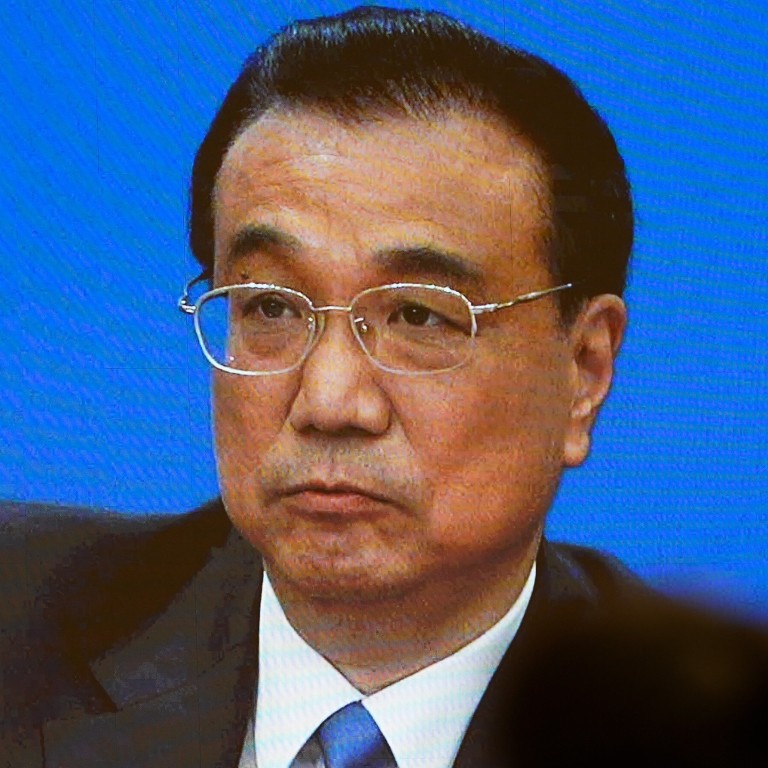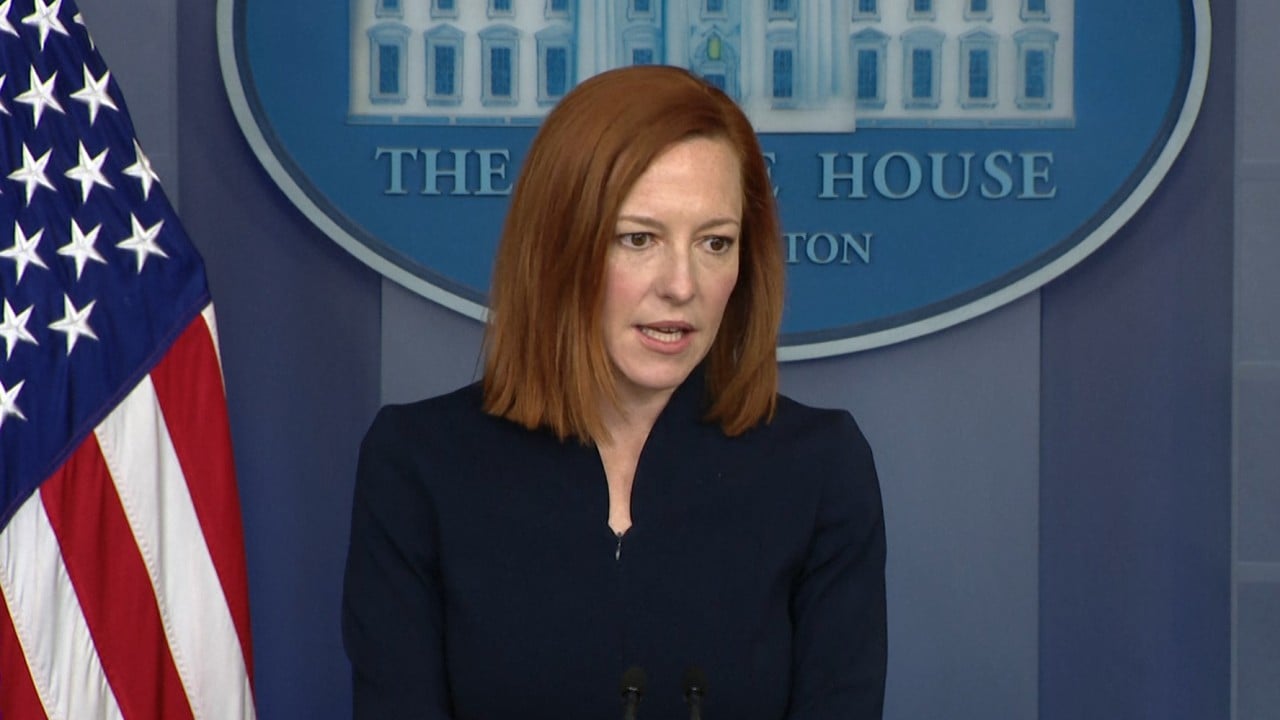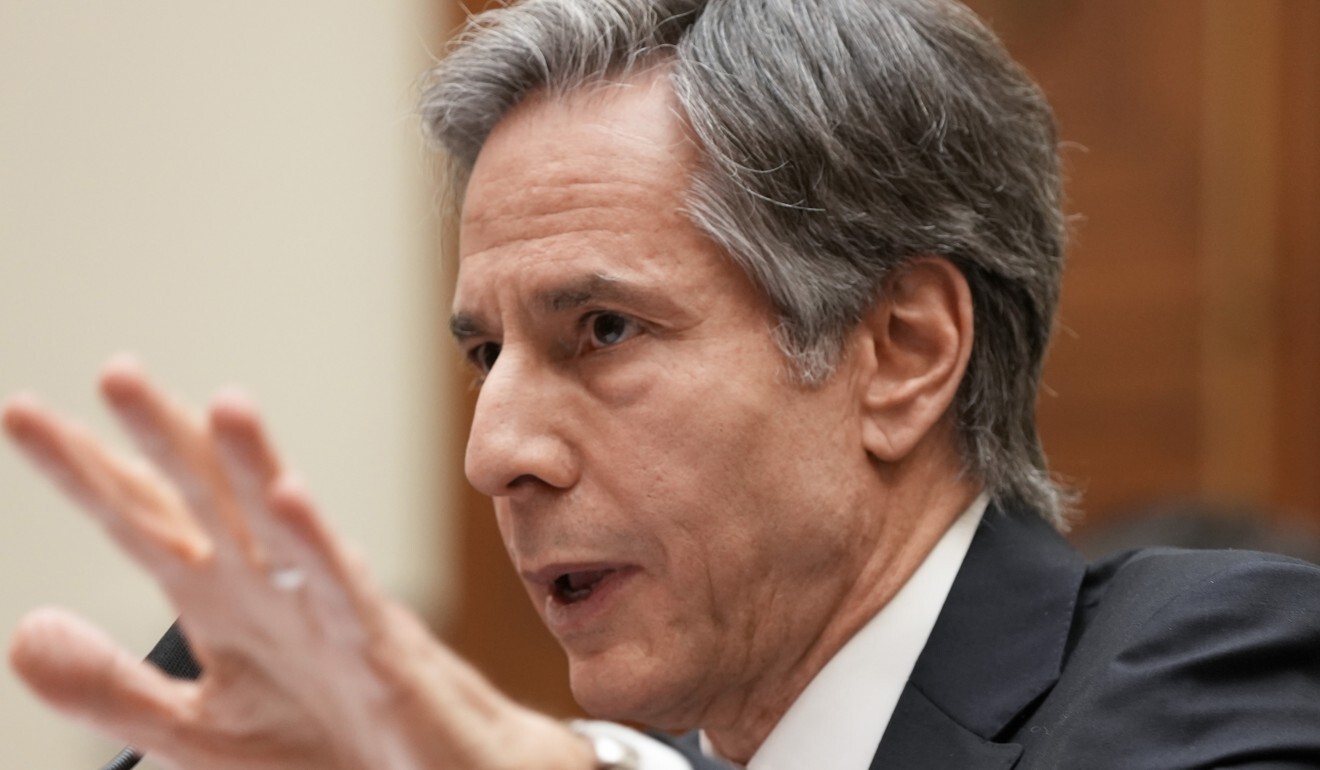
China-US relations: Premier Li Keqiang hopes both sides can find ‘common ground’ ahead of Alaska talks even if they ‘can’t work everything out any time soon’
- Li says he hopes the two sides can work to build trust after it was confirmed that senior officials will meet next week in Anchorage
- But US Secretary of State Antony Blinken has downplayed the prospect of restarting the dialogue between the two without concrete action from Beijing
Asked about the state of relations with the US at his annual press conference at the close of the annual parliamentary session on Thursday, Li said there were many areas where the two countries could work with each other, and called for the two countries to “focus on the common ground” and try to overcome their differences.
“We hope to see dialogue between the two countries in multiple areas and at various levels. Even if we can’t work everything out any time soon. Such an exchange of views will help boost trust and expel misgivings. It will also help us better manage and mitigate our differences,” he said.

01:55
Top US and China envoys to meet in Alaska, White House confirms
China has confirmed that its foreign policy chief, Yang Jiechi, and Foreign Minister Wang Yi will meet Blinken and US national security adviser Jake Sullivan in Anchorage next Thursday, saying the meeting was being held at the invitation of the Americans.
The foreign ministry’s statement described the meeting as a “high-level strategic dialogue”, signalling China’s desire to establish a dialogue mechanism rather than have a one-off meeting.
In a follow-up statement, foreign ministry spokesman Zhao Lijian said Beijing hoped the Biden administration would “abandon the cold war and zero-sum mindset”, stop interfering in China’s domestic affairs and put relations back on the right track.
Blinken says China poses 21st century’s greatest geopolitical challenge
But Blinken insisted that the Anchorage meeting “is not a strategic dialogue” and would not be the start of a series of bilateral negotiations unless Beijing acted to address Washington’s concerns.
“There’s no intent at this point for a series of follow-on engagements. Those engagements, if they are to follow, really have to be based on the proposition that we’re seeing tangible progress and tangible outcomes,” he said.
“We’ll also explore whether there are avenues for cooperation, and we’ll talk about the competition that we have with China to make sure that the United States has a level playing field and that our companies and workers benefit from that,” he told the House foreign relations committee.
He said Xinjiang, where China is accused of detaining a million Uygurs and other members of Muslim minority groups, was one topic the US would “forcefully” speak out about.

Chinese observers said they did not expect the meeting to offer much beyond a chance for senior officials to get to know each other and test the waters.
“What China wants the most from the meeting is not tangible outcomes, but an overall framework and a sense that the two sides can keep talking. Whether there will be follow-up talks will be the key thing to watch,” said Zhang Jiadong, an international relations professor at Fudan University.
US-China trade deal: Washington unlikely to relent on Beijing’s commitments
Ding Yifan, former deputy director and senior fellow of the Institute of World Development at the State Council’s Development Research Centre, said it was possible that specific issues would be raised, such as the situation in Myanmar, the second phase of trade talks and the extradition case of Huawei executive Meng Wanzhou.
“Because of their cultural differences, China and the US have very different expectations for the meeting. China will focus on the general direction of bilateral relations and wants to understand the overall future direction, while the US wants to use the meeting to solve specific issues,” Ding said.
Blinken will stop in Anchorage on his way back from a visit to Japan and South Korea with Defence Secretary Lloyd Austin to reaffirm the US commitment to its allies in the region.
Shi Yinhong, an international relations scholar at Renmin University, said he did not expect much would be achieved at the meeting.
“Biden has said he needs to discuss with allies before setting his China strategy, and has largely ignored China’s call for establishing a dialogue mechanism,” he said. “They also know China will not compromise on key issues like Taiwan, Xinjiang or Hong Kong.”
Li says China will continue to work with WHO on Covid-19 origins
Li Chen, associate professor at the school of international studies at Renmin University of China, said one item on the agenda should be clarifying how the two sides manage their differences.
“There is definitely going to be both competition and cooperation in China-US relations. I think the US hopes to exert pressure on China on some major issues during the meeting, such as Taiwan, Xinjiang and Hong Kong,” Li said.
“They are also likely to discuss how they should manage potential conflict risks on various fronts such as the South China Sea – if the two sides can’t meet each other’s requirements. The problems between China and the US are still similar to those in Trump’s time.”


